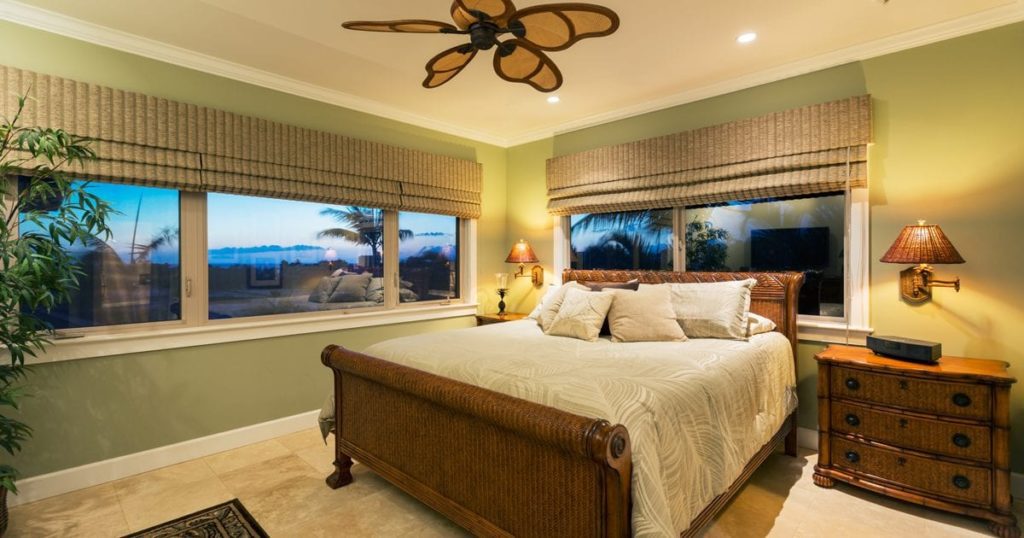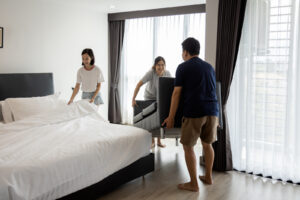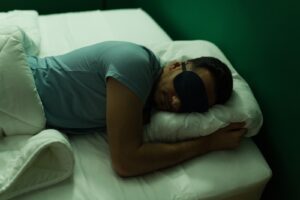Do you struggle to get enough sleep due to disruptive light? Light from all sources, including street lights, the glow from electronics, or even early morning sunlight can make it difficult to get the necessary sleep you need.
Keeping your sleep environment dark is critical to helping you fall and stay asleep. We cover practical tips to help you make your room dark.
Use Blackout Curtains
If you sleep during the day or have a bedroom that is exposed to street lights or other neighborhood light pollution, it can be tricky to keep your bedroom dark. Installing blackout curtains or shades can help block out light to give you a darker sleep environment.
Make sure that you are buying blackout curtains or shades that are an appropriate size for your window. When in doubt, it’s better to buy larger curtains than smaller ones to ensure that your window is fully covered.
Try an Eye Mask
Wearing an eye mask can help reduce light at night. Eye masks are particularly helpful if you share your bed with another person, especially if they are using reading lights or electronic devices while you are trying to fall asleep.
Pay attention to the blackout capability, fabric, and fit when purchasing an eye mask. Finding a comfortable mask will help you keep it on throughout the night.
Block Light from Electronic Devices
Waking up in the middle of the night to use electronic devices that emit blue light can make it harder to fall back asleep. Using airplane mode or turning off your phone or tablet can help keep the notification lights from waking you up during the night.
Consider using the blue light filter setting or blue light blocking glasses to limit exposure to electronic light at bedtime, as it can harm your sleep.
Even small amounts of light from idle electronics, such as chargers, televisions, or digital clocks, can have a big impact on sleep. Unplug any unnecessary devices or use tape to cover the parts emitting light.
Paint Your Walls a Dark Color
While painting your bedroom may seem a bit drastic, darker wall colors have the ability to absorb light rather than reflecting it. When the walls of your bedroom are painted in darker shades, they can absorb any external light that enters the room, reducing overall brightness.
Consider painting your bedroom a deep blue, dark green, or rich earth tone to create a dark and soothing bedroom environment.
Mind the Gap
If you are unable to turn off the hallway lights or other lights in your home, the gap between your door and floor can be another source of light in your bedroom. Placing a rolled-up towel against your door gap can help block light from entering.
Switch Up Your Bedroom Layout
Try positioning your bed so it doesn’t face windows or another light source. Strategically placing your dresser, bookshelves, or other bedroom furniture can also help block or redirect incoming light. Room dividers may also help section off your sleeping area from any light sources.
Ask the Sleep Doctor
Have questions about sleep? Submit them here! We use your questions to help us decide topics for articles, videos, and newsletters. We try to answer as many questions as possible. You can also send us an email. Please note, we cannot provide specific medical advice, and always recommend you contact your doctor for any medical matters.




